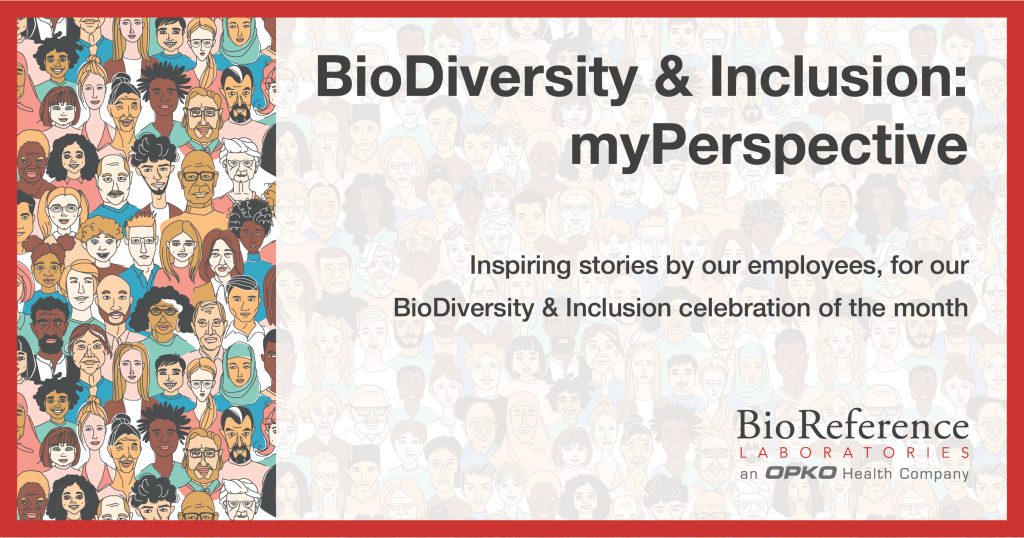As part of Women’s History Month, Jewell shares her perspective on the mothers of modern gynecology, her family’s history, and the demand for change in women’s rights through our BioDiversity & Inclusion: myPerspective series
By Jewell, Specimen Processing Department
The “Mothers of Modern Gynecology”[i] are omitted from medical textbooks. There are no beautiful Black busts of Betsey, Lucy or Anarcha, the enslaved women subjected to a plantation physician’s surgical experiments sans anesthesia. Dr. James Marion Sims statues are sprinkled across a few states, yet these three teenage girls are buried in his footnotes. Dr. Sims invented the speculum and revolutionized surgical repair of traumatic childbirth tears from the bladder to the vagina and the vagina to the rectum. His advances were made at the non-consensual expense of Black women. He recorded their screams and just three of their names; the other enslaved women were erased. Dr. Sims perfected his technique after 30 surgeries on a young 17-year-old girl named Anarcha. The rest of herstory remains a mystery.
Dr. James Marion Sims, formerly known as the father of modern gynecology[ii], was employed by plantation owners. The owners were invested in their property producing and reproducing for profit. They needed their baby-makers back in business. STAT! Sims sought a surgical solution and sacrificed enslaved women. They suffered invasive surgery and sutured skin with nothing to numb them. At the time, the medical perception was that Black people didn’t feel pain; nearly 150 years later that perception is still present. Doctors dangerously deny and dismiss Black women’s self-reported experience of pain and perpetuate the “strong Black woman” stereotype.
There are parallels between Black women’s pain being ignored and Black mother mortality rates. Black women are three times more likely to die from preventable pregnancy-related deaths, and implicit bias plays a part.[iii] Healthcare quality, delayed diagnosis and doctor’s deeds are directly linked to the deadly consequences for Black moms and babies. Dr. Sims was a top doc in his time. He was named the president of the American Medical Association and the American Gynecological Society. While Sims served as the president of the American Gynecological Society, my great-great-grandmother Lucinda Daniels was born in rural southwest Georgia. She grew up and married my great-great-grandfather Scott Baldwin and together they had 22 children. 13 of their children, including two sets of twins, passed away during infancy. Although Lucinda and Scott were born 15 years after the Emancipation Proclamation, they were still enslaved as sharecroppers on the same land their parents were enslaved. The harsh conditions of their fieldwork and no access to hospital healthcare contributed to the babies’ mortality.
Unfortunately, not much has changed since plantation patriarchy[iv] created the framework for prioritizing profit over people. In a perfect world, we would welcome women into the workforce in a real way by offering equal pay for equal work. More companies would support family leave so that both parents could take the time they need to enhance early childhood development, and neither parent would have to sacrifice their career. Our federal and state governments would provide subsidized support for accessible and affordable childcare. There might even be paid time off for women’s health screening days to encourage employees to prioritize their physical health, or paid partnerships with women’s health apps like Flo.
BioReference and GenPath Women’s Health are shaping the conversation around women’s health[v] and creating equitable opportunities for women in the workplace. During a recent International Women’s Day speaking event with Kesha Walker, Vice President of Marketing and Communication, I was surprised to learn that over 30% of BioReference’s executive leadership team are women. This intentional effort needs to be amplified across industries. I’ve worked for Fortunate 500 retail companies where the C-Suites did not reflect the consumers or contributions of women. Prioritizing people over profit is a proven strategy to improve productivity and employee wellbeing, which can have a measurable impact on a business’s bottom line.

ABOUT THE AUTHOR
Jewell is a Rutgers University and Fashion Institute of Technology alumna and a trauma-informed yoga instructor. When Jewell is not in the laboratory, she is a content creator, an avid writer and an advocate for holistic health practices. Her work has been featured on the Association for the Study of African American Life and History and on the African Burial Ground National Monument social media platforms and websites.
[i] Vedantam, Shankar and Northington Gamble, Vanessa, MD, Ph.D., 2016, Remembering Anarcha, Lucy, and Betsey: The Mothers of Modern Gynecology, NPR Hidden Brain Podcast
[ii] Holland, Brynn, 2017, The Father of Modern Gynecology Performed Shocking Experiments on Enslaved Women, History
[iii] Office of Minority Health & Health Equity, 2021, Working Together to Reduce Black Maternal Mortality, Centers for Disease Control and Prevention
[iv] hooks, bell, 2004, We Real Cool: Black Men and Masculinity, New York: Routledge
[v] 2021, BioReference Celebrates 40 Years: Our Story, BioReference Blog





















